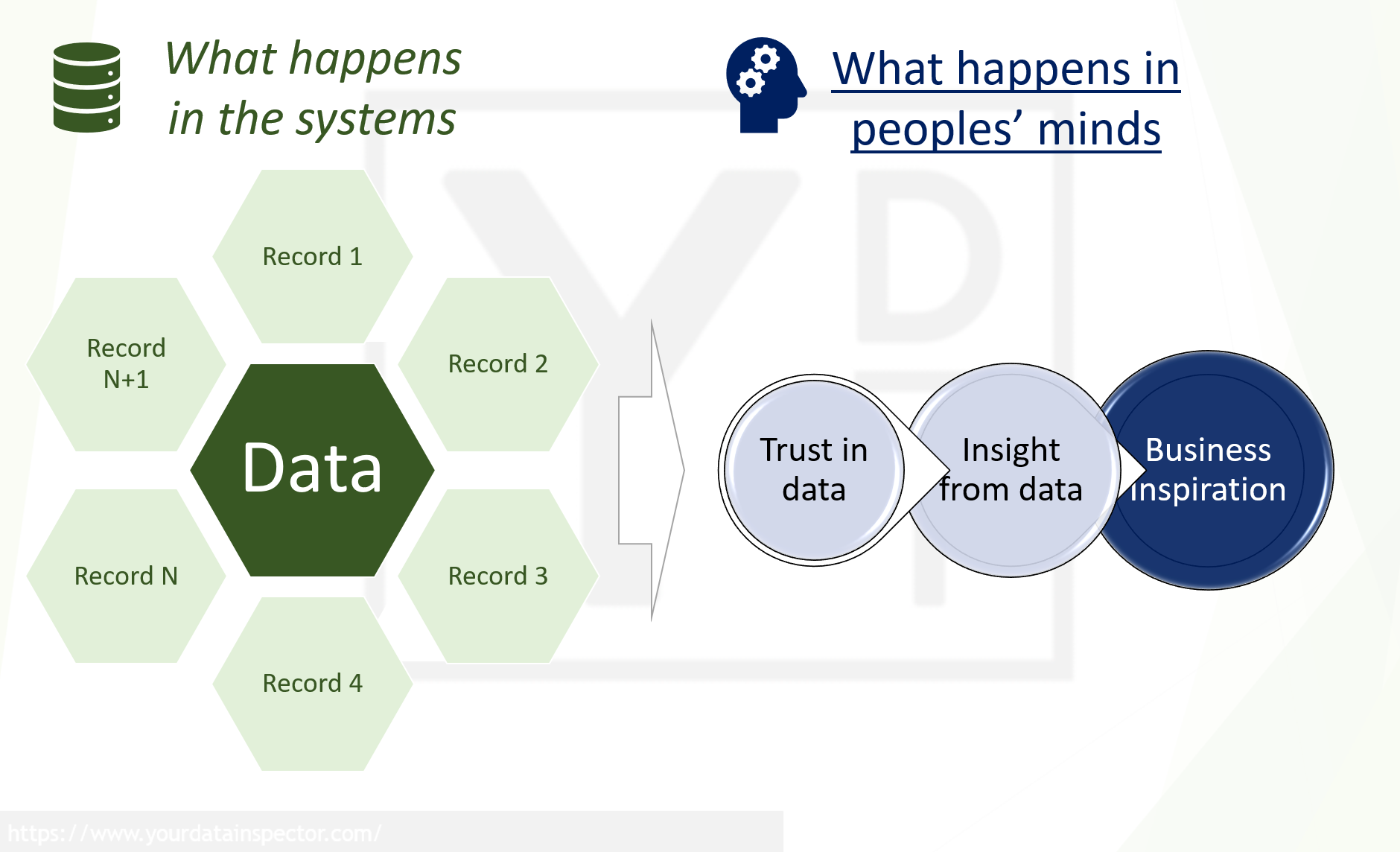Obviously, this is a very vague question. But question that we came across recently and we thought it might be interesting to explore. But where to start?
What is “business inspiration”?
This is a term that we just invented. To us “business inspiration” is when something happens in the company that ultimately leads to advancing or achieving its goals. Events like the acquisition of unique resource, or the hiring of a talented individual. Or maybe just a late afternoon Friday meeting when several colleagues are casually discussing and brainstorming after a hard week. Companies want such events. They purposefully aim at or outright pursue them as these could lead to competitive advantage and favorable returns. So, can the data itself be or become a “business inspiration”?
How data compares against all other “business inspirations”?
Data is data. One and zeros that represent records of events. Companies typically use this data to achieve business goals, ranging from meeting hard legal requirements to sparking innovation and creativity. To continue with the example of the colleagues talking in the Friday afternoon. What do they need to upgrade their conversation from a casual talk to a brainstorm session? Logically, if they didn’t have any knowledge about the business context or the general environment, they can never direct their conversation on the path to meaningful company results. But they possess specific knowledge on these topics which comes from a collection of facts. In this moment of conversation, these facts are in the minds of the participants, but the source is usually a system that holds these facts, and they have access to. And the facts themselves come from data. For example, in this conversation, if (1) one of the colleagues indicates that the latest numbers on the consumer confidence are increasing, (2) the other that the latest results from the testing of a new methodology in the nearby university shows great promise and (3) the third that his market research shows a new consumer need arising, this Friday afternoon conversation can become the start of a new product development project that leads to significant business gains. Now, the question is, would any of these colleagues share their knowledge, facts or data if they haven’t seen them on the first place and, more importantly, if they don’t trust them?
Data is the catalyst of “business inspiration”
Data creates information, that people convert into knowledge and finally inspiration happens. In our example above, this is what just occurred. Data was available in each of the three domains represented around the table. The specialists converted it into insights, shared those insights and set this team to a path of discovery. We say data is a catalyst as it has sparked a chain of events that lead to “business inspiration”.
If the data is the spark, the data quality is the fuel
(1) To compile a proper consumer confidence report, you need continuous observation. (2) If you want to research a new technology, you need scientific method that is iterative in nature. (3) If you need a consumer research, you need to process the opinions of many people to reach a meaningful conclusion, usually over longer period. Thus, to really generate data that could lead to information and then knowledge, the process cannot be a one-off event. It must be continuous, being iterated and maybe refined, in order to lead to the desired outcomes. A key element to keep the process running is to have a good quality data along the way. All because the “business inspiration” is a moment, a result from meticulously planned and designed circumstances where the element of trust in the data is highly prominent. We argue, the trust in data comes from, among others, its quality.
So, can data inspire?
For “business inspiration” to happen, data is needed. Otherwise, the professionals will never have the required foundation that creates the spark. So, yes, data can inspire. This data, however, must be transformed into information and knowledge that, when nurtured properly, will give birth to ideas companies can benefit from. To walk the path, the data, where everything starts, must be of good quality so that everything that follows can be trusted and can be put forward for ideation.

